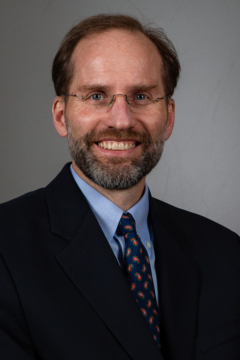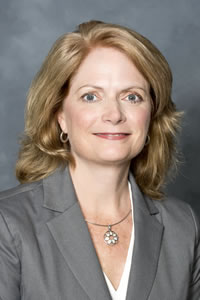William & Mary Professor of Education Planning, Policy and Leadership Christopher Gareis was awarded a $400,000 multi-year grant from the Virginia Department of Education (VDOE) to address learning loss through a data-driven pilot program.
The initiative, Bridging the Gap, is designed in response to the profound learning challenges brought about by the COVID-19 pandemic and to ensure that the state’s 1.3 million students, with diverse backgrounds and unique needs, receive the academic support they need to thrive.

Virginia continues to address learning loss associated with the pandemic, particularly in the areas of math and reading. In response, VDOE partnered with school divisions to identify and prioritize the immediate learning needs of specific student groups. Educational leaders realized that for these efforts to succeed at scale, they needed to harness the power of data.
Bridging the Gap launched last spring and is a collaborative effort among William & Mary, the VDOE, and Advanced Learning Partnerships (ALP), an organization with a strong history of supporting Virginia schools through a team-based coaching model. The program brings together educators, administrators, and specialists from 25 school divisions across the state. A pilot program designed to evaluate what works and potentially implement in school divisions statewide, Bridging the Gap has the potential to impact education in Virginia profoundly.
Gareis, who serves as the grant’s Principal Investigator, brings expertise in program development and evaluation. Central to his leadership role in this initiative is his long-standing work with Virginia school divisions in developing their capacity to make practical use of valid, fair, authentic assessment practices at the classroom level.
“It became evident in the early stages of developing Bridging the Gap that success would depend in large part on the strength and depth of teachers’ assessment literacy—that is, their capacity to not only measure student learning but use assessments formatively in order to progress student learning,” Gareis explained.
Gareis, internationally known for his work in assessment literacy, is excited about how this project is moving his research in a new direction. As conceived by the VDOE, Bridging the Gap is comprised of three key elements: assessing profiles of student learning using the VDOE’s new data dashboard; engaging parents as partners in student learning; and developing focused, timebound personalized learning plans (PLPs) for students. Gareis’ role is to advise on the design of the Bridging the Gap model and evaluate the project’s successes, challenges and lessons learned.
Pointing out that the Latin root of the word “assessment” means “to sit beside,” Gareis emphasizes the importance of moving beyond the unintended consequences of the high-stakes standardized testing movement and reclaiming assessment as integral to the teaching-and-learning process.

(School of Education photo)
“One of the biggest changes students will see [as an outcome of this program] will ideally be a healthier understanding of the purpose of assessment, and that they and their parents could be part of the learning,” said Gareis. “Part of assessment literacy means that students, parents and teachers, instead of just teachers, are responsible for student learning.”
On a larger scale, the project will generate exemplary practices for leveraging the new data dashboard and model protocols for parent engagement in creating PLPs for their students. The objective is to bridge the learning gap that some students have experienced in reading and/or mathematics by leveraging the focused, collaborative efforts of teachers and parents alike.
“The strategy of parent engagement and data-driven decision-making is intuitively appealing, but it is more complex work than folks might realize. The need for smart, caring, creative, professionally prepared teachers in our public schools — and our collective support of them — is more important than ever,” Gareis explained.
During the summer of 2023, four regional events were held to share the program’s goals and kickoff collaborative work among participating divisions. These events provided groundwork for the current school year and indicated strong support and commitment from early participants, who included teachers, specialists and administrators. The work begins in earnest this fall, with continued support from ALP coaches and the implementation of PLPs in select grade levels.
Meanwhile, Gareis is at work with the evaluation team, including his colleague Associate Professor of Educational Policy, Planning and Leadership Leslie Grant, to conduct surveys, reviews, focus groups and data analyses to gauge the program’s impact and identify how tactics may be adjusted accordingly.
The partnership between VDOE, William & Mary, ALP and the dedicated professionals involved demonstrates the power of collaboration and innovation in addressing the challenges of the post-pandemic educational landscape. As the project continues to evolve, the promise of brighter educational horizons for all of Virginia’s students comes into sharper focus.
Editor’s note: Data is one of four cornerstone initiatives in W&M’s Vision 2026 strategic plan. Visit the Vision 2026 website to learn more.
